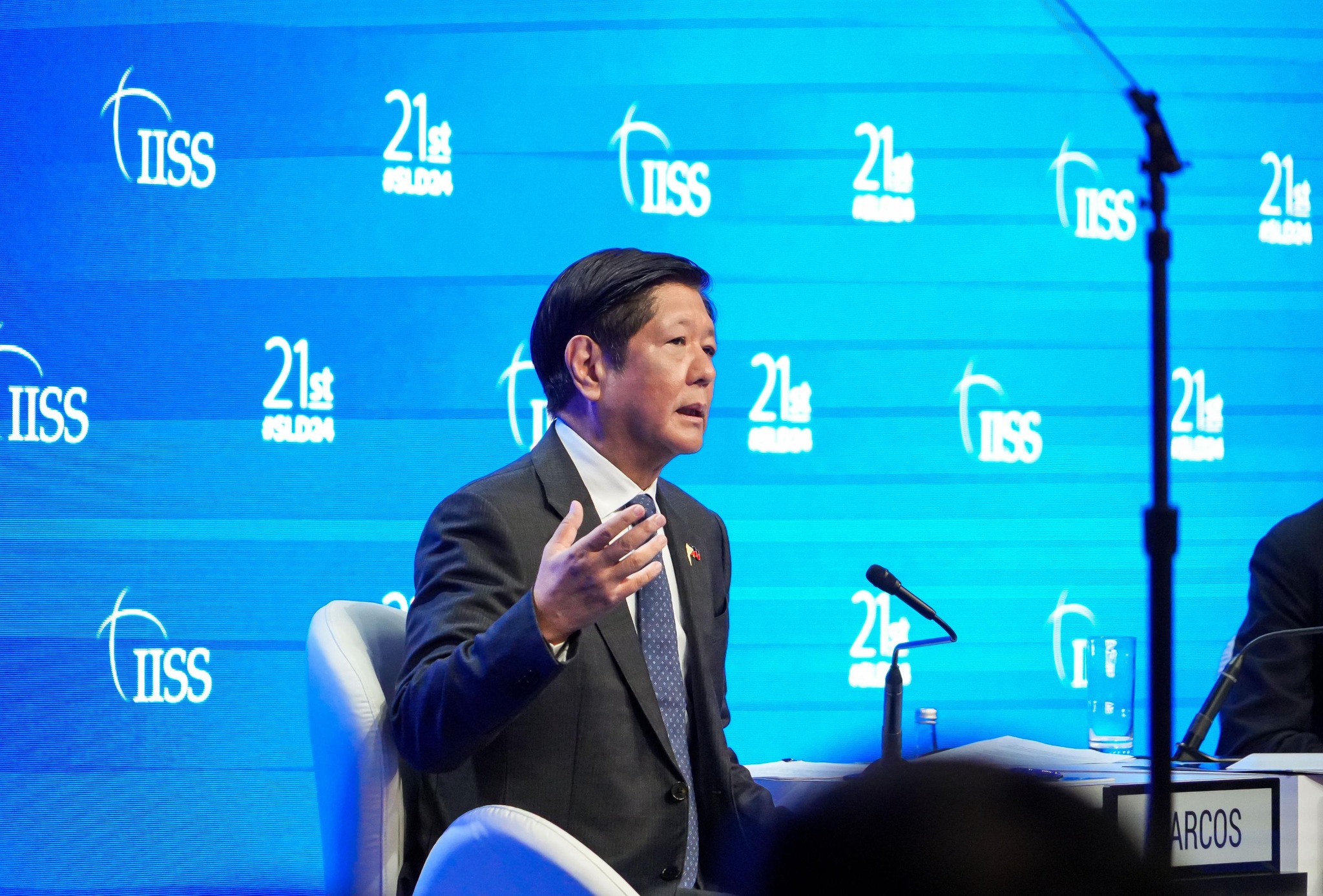News
Marcos calls for sovereign equality of states

FILE: President Ferdinand R. Marcos, Jr. on Friday vowed to embrace the Philippine’s role in the region and around the world ‘with a sense of purpose’ as he underscored the strong potentials of the country given its position in global standing. (PCO Photo)
MANILA – President Ferdinand R. Marcos Jr. on Friday emphasized the need to reaffirm the sovereign equality of all states amid the challenges that blur the way for a united community of nations.
In his historic address for the 21st International Institute for Strategic Studies (IISS) Shangri-La Dialogue in Singapore, Marcos said the principle of sovereign equality that is included in the United Nations (UN) charter is among the constants that should guide nations in preparing for the challenges ahead.
“The sovereign equality of states must remain sacrosanct,” Marcos said.
He issued a call to reject unfair narratives to prevent other countries from imposing “hierarchy” on others.
“We must reject unjust narratives that seek to subsume distinct national interests into so-called ‘major country’ dynamics, which seek to impose hierarchy among nations,” Marcos said.
“Those who came before us fought tirelessly throughout the last century to eliminate the age of spheres of influence and buffer states. We should not allow its ghost to haunt our region once more.”
He also called on members of the Indo-Pacific region to unite and make a bold stand against violations of international rules-based orders in the South China Sea (SCS).
The President reminded Indo-Pacific members they are not just “bystanders to unfolding world events.”
“We should transcend geopolitics, find common ground, (and) work to strengthen global institutions. This requires active leadership on the part of middle powers, which have the capacity to cross political and ideological lines, forge genuine consensus, and lead credible efforts towards decisive multilateral solutions,” he said.
“We need to begin by resoundingly rejecting misguided interpretations that paint our region as a mere theater of geopolitical rivalries. We are not mere bystanders to unfolding world events.
We are the actors that drive those events. We are the main characters in our collective story. We are the owners of the narratives of our regional community.”
Marcos said any attempt to deny any country’s strategic agencies must be rejected, “especially by force that seek to subordinate our interests to anyone else’s.”
Aside from sovereign equality, he noted the importance of ASEAN-led processes, as well as the rule of law and integrity of multilateralism as the three guiding constants for the region in the face of “seven realities in the Indo-Pacific.”
The first reality, according to him, is that the future of the region will be determined by many nations.
Marcos said each of them has its own unique experiences and aspirations, “yet their respective agencies are being challenged by attempts to undermine our faith in prevailing international norms.”
He identified the second reality as the strategic competition between China and the United States that is permeating the evolving regional landscape.
Their rivalry is constraining the strategic choices of regional states, he said, adding that their contest is exacerbating flashpoints and has created new security dilemmas.
Another reality, the President said, is that the region looks to ASEAN as the institution that should hold the center amid these evolving dynamics.
He, however, said challenges threaten the unity and centrality.
Fourth, as geopolitics continue to permeate the global governance architecture, the role of bridge-builders has become increasingly important in forging decisive multilateral solutions, Marcos said
The fifth, he said, is that the global commons would continue to be crucial to the security of all states in the region.
He said the access of developing countries to the high seas and outer space, and to the peaceful uses of science and technologies, is crucial to international development.
The sixth reality, he said, is that climate change remains a deadly challenge for the region and the world.
It is the first truly global threat, Marcos said.
“For the first time, we face a crisis that affects every single human being on earth and requires action from every single human being as well,” he added.
The seventh reality is that the development of advanced technologies is rapidly transforming human life and experience.
“These technologies will solve many of our old problems, but they are so powerful that they also have the potential to disrupt our political and our social orders,” Marcos said.
“These seven realities muddle the waters that we have to navigate in our collective journey as a community of nations. We cannot reverse course. We must persevere. We must push through.”
He said the current juncture does not call for a revision of the regional order; instead, it reaffirms the wisdom of San Francisco in 1945, Bangkok in 1967, and Manila in 1982.
“Let us return to San Francisco and reaffirm the sovereign equality of all states… Let us also return to Bangkok and support ASEAN’s efforts to build a rules-based, people-oriented, and (people-centered) regional community… Let us return as well to Manila and reaffirm our common understanding of how international law governs the peaceful settlement of disputes,” the President said.
“Amidst misleading narratives that seek to discredit international legal procedures, there is a need to reaffirm that those modalities are an expression of good faith. They are a service to the progressive development and codification of international law. They are never an unfriendly act.”
Marcos made history as the first Philippine leader to deliver a keynote address before the IISS Shangri-La Dialogue, the leading defense and security conference in the Asia-Pacific region.





















